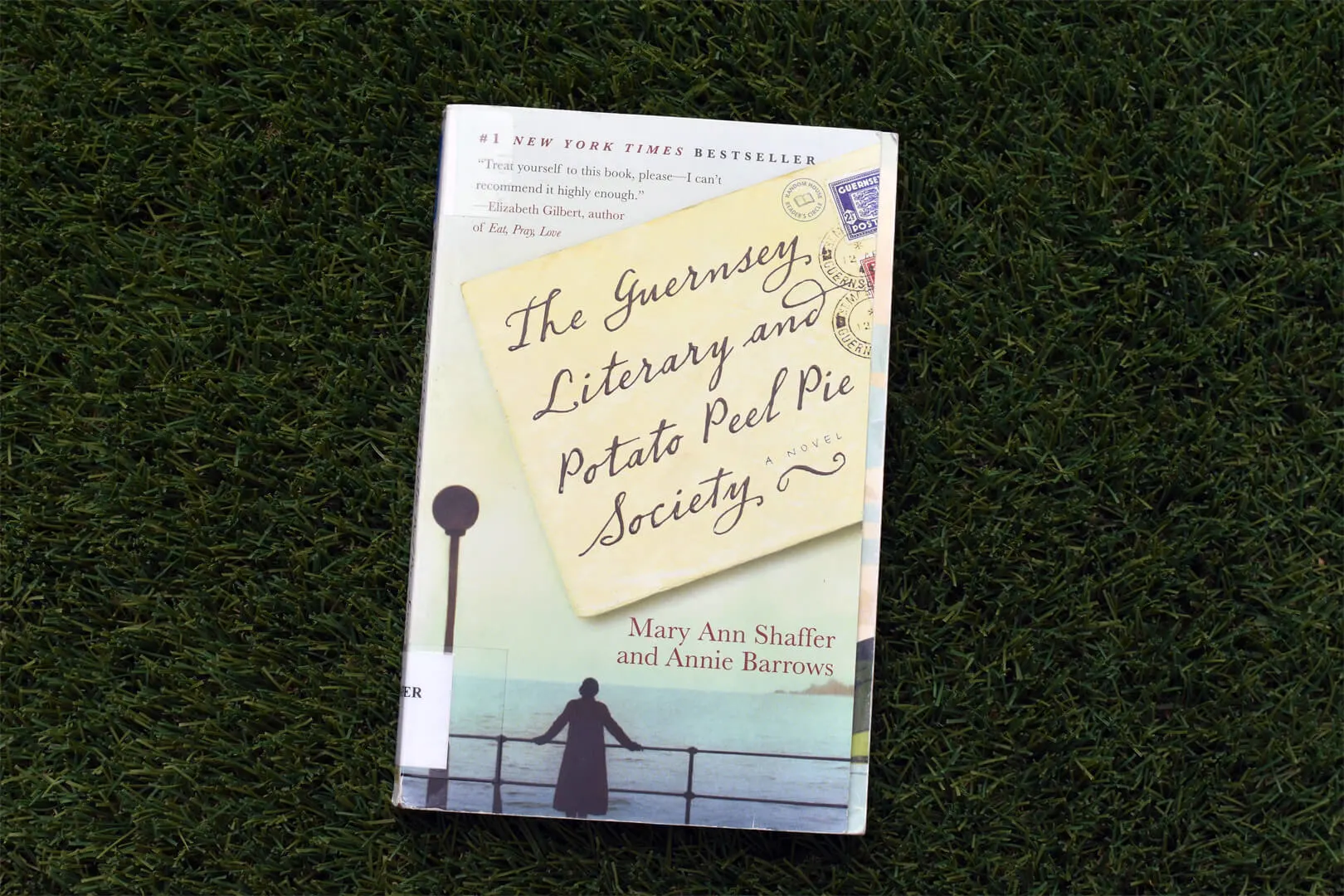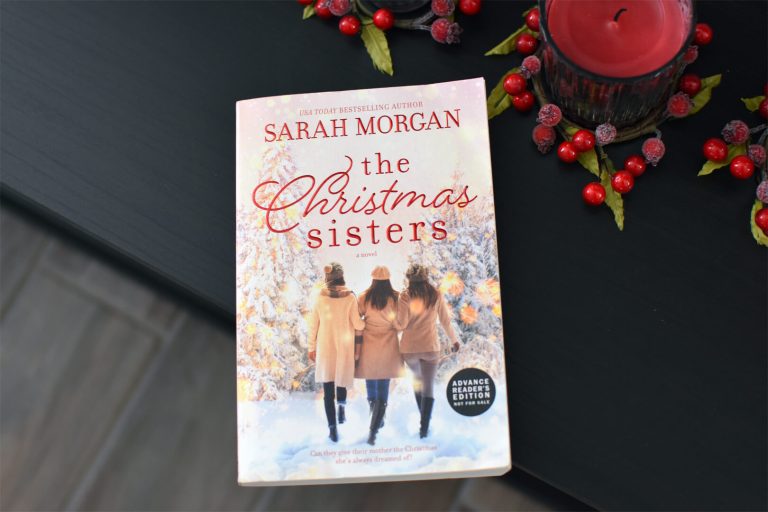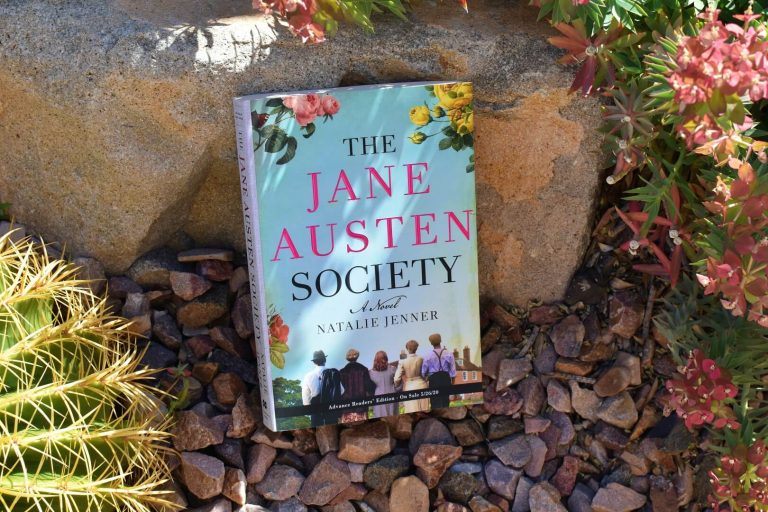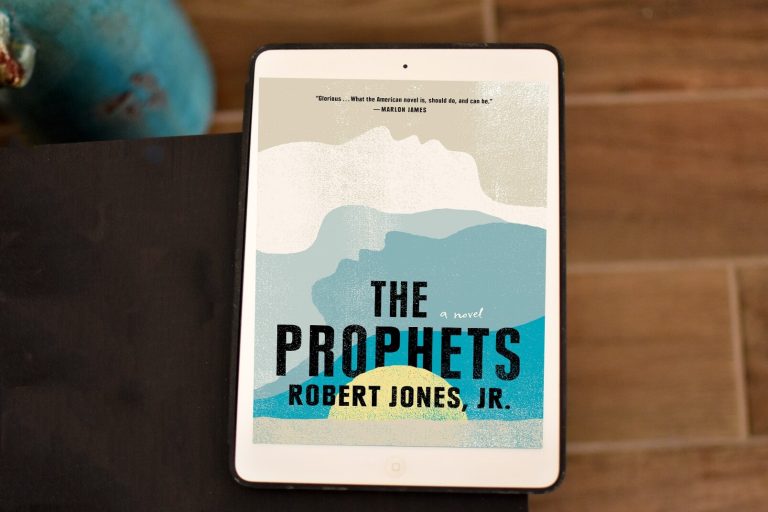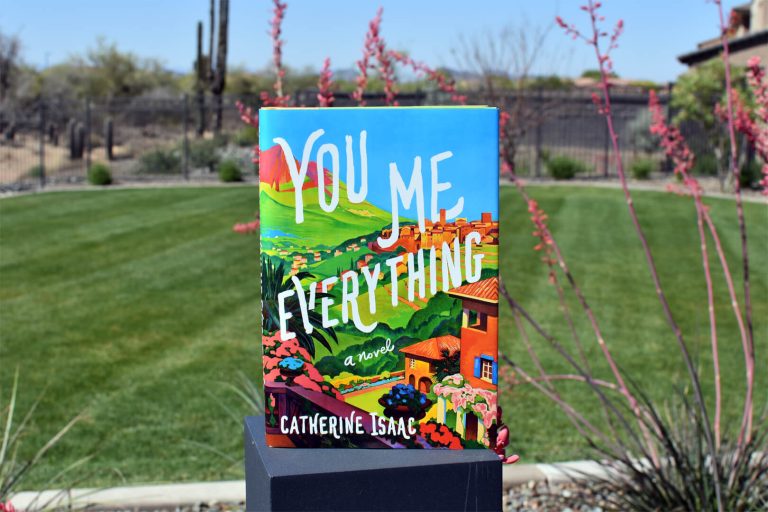If a novel composed entirely of letters has you feeling skeptical, you’re not alone. When I found out The Guernsey Literary and Potato Peel Pie Society is a novel that only features communication via letters, I had my doubts. But I decided to give it a shot and I’m so glad I did.
The story centers around the protagonist Juliet Ashton as she searches for her next writing subject after the end of WWII. She finds it in a letter from a man she’s never met, a native of the island of Guernsey, who has come across her name written inside a book by Charles Lamb. As Juliet and her new correspondent exchange letters, Juliet is drawn into the world of this man and his friends. The Guernsey Literary and Potato Peel Pie Society isn’t just a random combination of words but born as a spur-of-the-moment alibi when its members were discovered breaking curfew by the Germans occupying their island. Juliet begins a remarkable correspondence with the society’s members, learning about their island, their taste in books, and the impact the recent German occupation has had on their lives. Captivated by their stories, she sets sail for Guernsey, and what she finds will change her forever. Check my preview for most about the synopsis and the unique backstory behind writing the book.
I recently read An American Marriage by Tayari Jones and a key section of the novel is written in letters. It worked very well for that story (for more about that, check out my review here). But using that style throughout an entire novel is another different reading experience. But it absolutely works with The Guernsey Literary and Potato Peel Pie Society. Let me explain why.
Communication via letters
In a world where we mainly communicate through text, the art of writing a letter grows more distant with each passing year. Sitting down and hand writing a letter seems pointless when you can just Instagram your life with a couple sentences. So, there was something comforting and just plain sweet reading people’s exchanges in letter form. It worked for this novel because for a good portion of it, Juliet is in London and her correspondents are in Guernsey. There was an authentic tone to their conversations that might not have take place in person. There’s something about putting pen to paper that makes one more honest, even more so than typing an email. As a result, we learn much about Juliet and the people of Guernsey.
Once you get used to the letter writing style, it almost feels like a traditional novel. You’ll forget you’re still reading letters as the book goes on.
Love of books
A key component of this novel is bonding over a love of books. Any literature lover will be able to relate to it. From book discussions to Juliet’s writing process to the publishing world, it’s a love letter to novels.
German occupation
There’s lots of sweetness in this read with books and Juliet’s romance. But it also covers the German occupation of the island and some of the brutal experiences the island’s residents had to endure. However, it’s not so cut and dried and while there’s cruelty, there’s also some kindness that happens too. It’s a reminder how we can never forget the past.
Conclusion: book lovers can’t miss this one!
Also, be sure to check out the movie version on Netflix!
